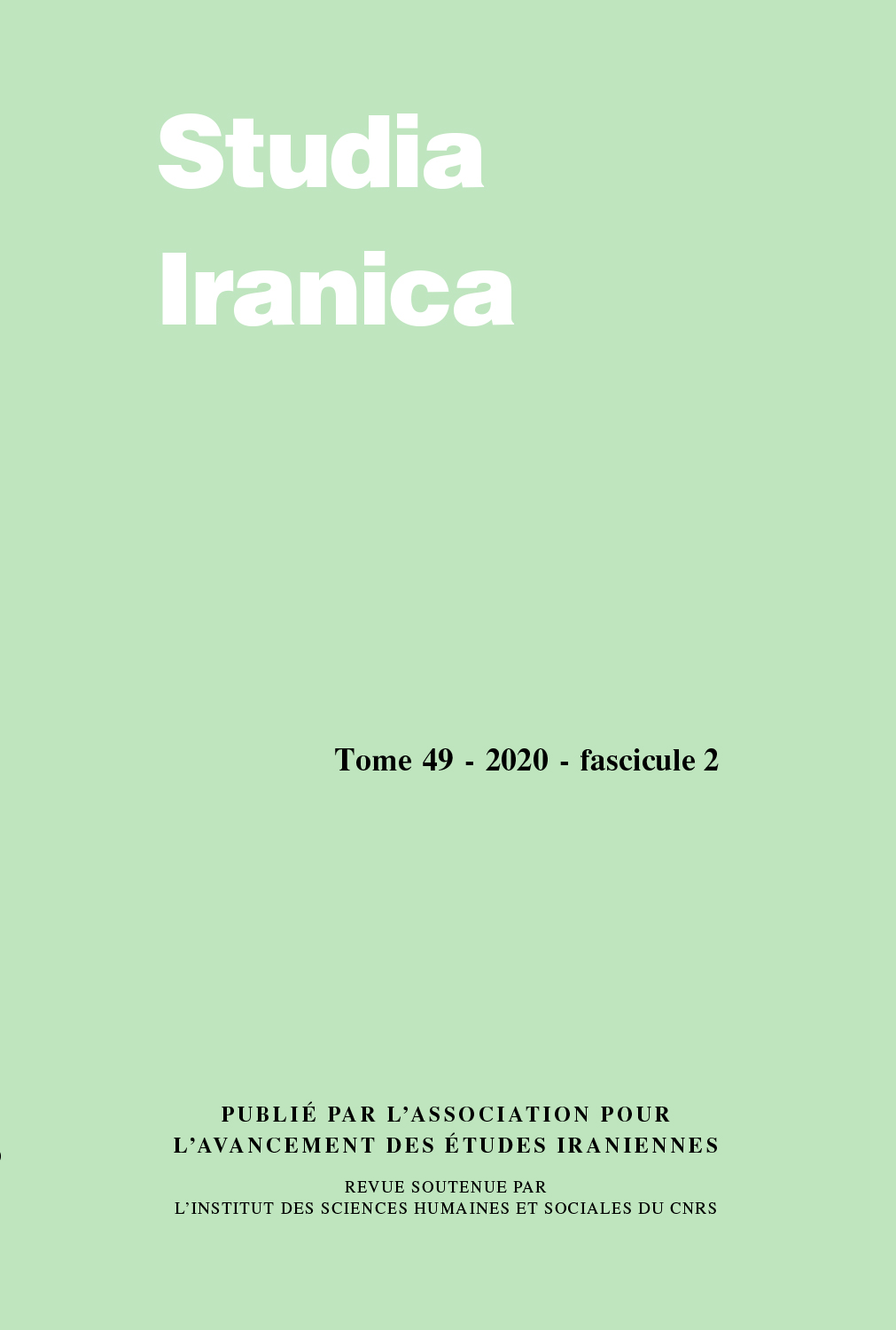 previous article in this issue previous article in this issue | next article in this issue  |

Preview first page |
Document Details : Title: Muḥammad b. Ya'qūb al-Kulaynī (m. 328 ou 329/939-40 ou 940-41) et son Kitāb al-Kāfī Subtitle: Une introduction Author(s): AMIR-MOEZZI, Mohammad Ali , ANSARI, Hassan Journal: Studia Iranica Volume: 38 Issue: 2 Date: 2009 Pages: 191-247 DOI: 10.2143/SI.38.2.2046915 Abstract : Muḥammad b. Ya'qūb al-Kulaynī est considéré comme le père du Hadith shi'ite imamite et son opus magnum, le Kitāb al-Kāfī, somme impressionnante de plus de 16000 traditions, comme la base fondamentale des doctrines théologiques, spirituelles et juridiques du shi'isme duodécimain. Et pourtant jusqu'ici aucune monographie n'a été consacrée ni à lui ni à son ouvrage selon des perspectives historico-critiques. La présente étude, loin d'être exhaustive, se veut simplement une introduction à ce sujet aussi vaste que capital pour l'histoire de la pensée shi'ite naissante. Y sont examinés les contextes politiques et religieux de l'époque d'al-Kulaynī, les milieux intellectuels qu'il fréquentait dans les cités de Qumm, de Rayy et de Bagdad, les informations éparses sur sa formation et sa vie, ses maîtres et ses disciples et finalement son oeuvre, plus particulièrement le Kitāb al-Kāfī, son seul ouvrage parvenu jusqu'à nous. Muḥammad b. Ya'qūb al-Kulaynī is considered as the founder of Twelver Shi'i Hadith and his opus magnum, the Kitāb al-Kāfī - huge compilation of more than 16000 traditions - as the true basis of theological, spiritual and juridical doctrines of Imami Shi'ism. However, no monographical study based on critical and historical methodologies does not yet exist on this author and his work. The present article is an introductive study on this large and important subject concerning the history of the early Shi'i thought. It is composed by an examination of the political and religious contexts of Kulaynī's time, the intellectual milieus he lived in at Qumm, Rayy or Bagdad, the fragmentary informations about his life, his masters and pupils and finally his works, specially the Kitāb al-Kāfī, his only survived book. |
|


